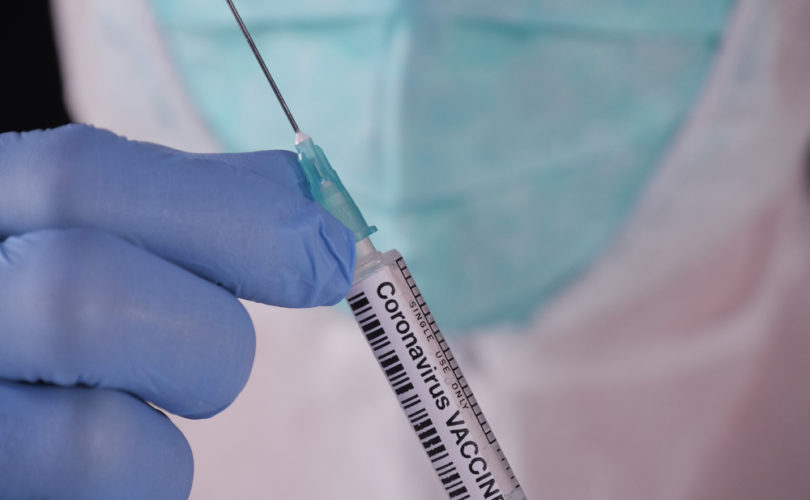LifeSiteNews has produced an extensive COVID-19 vaccines resources page. View it here.
July 29, 2021 (LifeSiteNews) – The largest four-year public university system in the United States announced this week that it will require all students, faculty members, and employees to receive a COVID-19 vaccine in order to return to campus for the fall term.
“The current surge in COVID cases due to the spread of the highly infectious Delta variant is an alarming new factor that we must consider as we look to maintain the health and well-being of students, employees, and visitors to our campuses this fall,” California State University (CSU) Chancellor Joseph Castro said Tuesday, The Daily Wire reported. “We urge all members of the CSU community to get vaccinated as soon as possible, and announcing this requirement now allows members of the CSU community to receive multiple doses of a vaccine as we head into the beginning of the fall term.”
“Dates by which faculty, staff, and students must certify vaccination will vary by campus due to differences in academic calendars, but all certifications must be completed no later than September 30,” the university saidy. “The CSU's COVID-19 vaccination policy will allow students and employees to seek medical and religious exemptions.” This theoretically means those opposed to the use of abortion-derived cells in vaccine development would be protected, though it remains to be seen whether CSU will keep its word.
CSU encompasses 23 campuses across California, an estimated student body of 486,000, and an estimated staff of 56,000. Such numbers mean CSU will have to “largely rely” on an honor system, spokesperson Mike Uhlenkamp said, though individual campuses could follow up on student attestations of vaccination by requesting proof.
The announcement comes amid a national vaccine debate that appears no closer to resolution than when the COVID-19 shots were first rolled out.
Arguably the biggest driver of hesitancy is the belief that the Pfizer, Moderna, and Johnson & Johnson vaccines have not been sufficiently studied for negative effects, given the fact that they were brought to market in a fraction of the time vaccine development has historically taken – clinical trials were performed in less than a year, when such trials traditionally take a minimum of two to four years.
Vaccine defenders note that the one-year development period was not starting from scratch, but rather relied on years of prior research into mRNA technology; and that one of the innovations of the Trump administration’s “Operation Warp Speed” was conducting various aspects of the development process concurrently rather than sequentially, eliminating delays unrelated to safety. But those factors do not fully account for the condensing of clinical trial phases — each of which can take anywhere from 1-3 years on their own — to just three months apiece.
In a pro-vaccine article published May 25, Dr. Moon Nahm of the University of Alabama at Birmingham acknowledged that “trial volunteers continue to be monitored for any long-term issues,” implicitly conceding the limits of medical authorities’ current knowledge and the lingering possibility of long-term effects.
Others believe the vaccines are unnecessary either for themselves, given COVID-19’s high survivability among most groups and low risk of asymptomatic spread.
Vaccine promotion efforts also continue to be undermined by the federal government’s own actions sending mixed signals about both the vaccines’ effectiveness and whether the vaccinated will be allowed to return to a normal life, such as the U.S. Centers for Disease Control’s latest guidance that indoor masking should resume in some areas even among the vaccinated, and the Biden administration’s refusal to disclose how many White House staffers have contracted COVID-19 despite being vaccinated.

